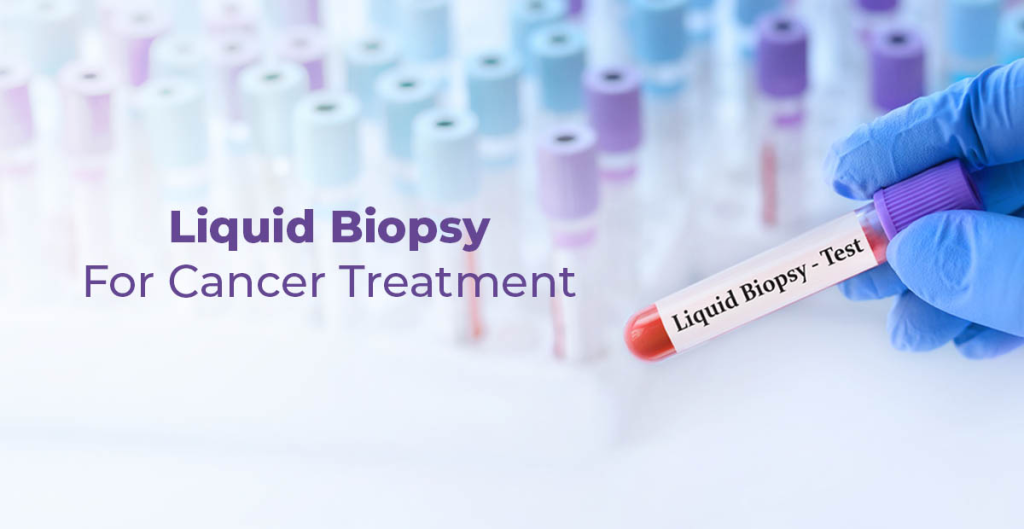Cancer is a word that changes everything in an instant. It brings along fear, uncertainty, and endless tests and procedures that add to emotional and physical burden. But what if there was a gentler, faster way to find answers? That is where Liquid Biopsy comes in. This simple test helps doctors to detect cancer, monitor its progress, and guide personalised treatments.
In this blog, we will take you through everything you need to know about liquid biopsy for personalised cancer treatment. Read on to stay informed.
What is a Liquid Biopsy?
A liquid biopsy is a test that checks your blood, urine, or other body fluids for signs of cancer. Instead of cutting out a piece of tissue like in a traditional biopsy, doctors can look for cancer cells or pieces of tumour DNA floating in your fluids. The big advantage is that it is quick, safe, and can be repeated multiple times. This helps doctors catch cancer early, see how it is changing, and track whether treatments are working.
How Does Liquid Biopsy Work?
When cancer cells grow and die, they release fragments of DNA and other biomarkers into the bloodstream. A liquid biopsy captures and analyses these fragments. With their help, it helps identify:
- Genetic mutations
- Gene amplifications
- Biomarkers for targeted therapies
- Resistance mechanisms to existing drugs
All of this can help confirm or clarify a cancer diagnosis when a traditional biopsy is not possible or practical. It can also aid in better treatment. Let us learn more about this in the following section.
Why Liquid Biopsy is a Game-Changer for Cancer Treatment?
Facing cancer is hard enough! Endless tests and painful procedures only add to the burden. Liquid Biopsy offers hope and gives patients the following benefits:
Is Non-Invasive & Safer
Traditional tissue biopsies involve removing a piece of the tumour for testing. This makes them painful and invasive. In contrast, liquid biopsy uses blood or other body fluids like saliva and urine, making it far less risky and much easier for patients.
Identifies Varying Mutations
Tumours are not uniform. They contain different types of cancer cells with varying mutations. A tissue biopsy samples only one area, often missing this diversity. Liquid biopsy, however, captures circulating tumour DNA (ctDNA) and circulating tumour cells (CTCs) shed by cancer from multiple tumour sites. This gives doctors a broader and more accurate picture.
Enables Repeat Testing
Since liquid biopsy is quick and safe, it can be done multiple times during treatment. This helps doctors monitor how a tumour changes over time, track treatment response, and detect drug resistance much earlier than with a tissue biopsy.
Helps with Early Cancer Detection
Liquid biopsy can spot tiny traces of cancer DNA or cells in the blood, even before tumours are visible on scans. This makes it beneficial for catching cancer at an early stage, reducing mortality, and lowering treatment costs.
Is More Accessible
In cancers like lung cancer, getting a tissue sample can be risky or even impossible. In this case, liquid biopsy provides a safe and effective alternative. It is also useful when no tumour tissue is available after surgery.
Helps Monitor Treatment Resistance
One of the biggest challenges in cancer treatment is drug resistance. Many patients initially respond well to targeted therapies. However, over time, the cancer may adapt and develop new mutations. This may make the drug less effective. Liquid biopsy analyses circulating tumour DNA(ctDNA) in the blood to catch these resistance mutations early. With this information, doctors can quickly adjust the treatment plan for better outcomes.
Final Thoughts
Liquid biopsy is transforming the way we understand and treat cancer. Unlike traditional tissue biopsies, it is non-invasive, safer, and repeatable. It gives doctors a clearer picture of the disease as it evolves. As research advances, we can definitely see liquid biopsy moving from innovation to everyday clinical practice. For patients, this means fewer painful procedures, faster answers, and treatments tailored to their unique cancer profile. If you or a loved one is exploring advanced cancer testing options, check out the OncoLife Liquid Biopsy 52-Gene Panel by LifeCell Diagnostics.

